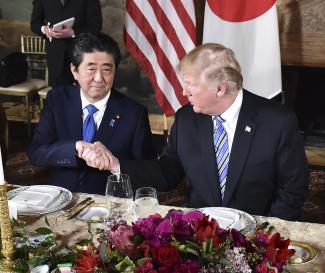Multilateral affairs
Volatile scenario

For example, the EU, Australia and other US allies still did not know whether the new tariffs on steel and aluminium, which the Trump administration introduced in March, will apply to their nations from 1 May on. The exemptions they were granted initially were only temporary, and diplomats were still working on the matter. In mid-April, Cecilia Malmström, the EU’s trade commissioner, had demanded permanent exemptions. Should that not happen, the EU was threatening to impose tariffs on US goods.
In regard to China, Trump announced that he will send a high-level team for negotiations to the People’s Republic in early May. It would include Steven Mnuchin, the treasury secretary, and Robert Lighthizer, the trade representative. Trump has been threatening to impose more trariffis on Chinese imports for weeks. Beijing, in turn, has indicated it would retaliate. Moreover, it has turned to the World Trade Organizsation (WTO), disputing the legitimacy of Trump’s steel and aluminium tariffs. The trade-related tensions between the USA and China may well escalate further. Compounding problems, the WTO needed new arbitrators for disputes, and Washingtion has been blocking the appointment process for months.
Should tensions with China escalate, Trump might make yet another U-turn in regard to the the Trans-Pacifice Partnership (TPP). Trump prominently withdrew from the negotiations last year. In April, however, he told his staff to consider joining the alliance, after it was formally agreed by 11 other countries. A few days later, he declared later that he appreciates bilateral agreements and does not like the TPP after all. That he made the statement by tweet after meeting Japan’s Prime Minister Shinzo Abe was considered a snub to this ally. If Trump discovers he needs partners in his dispute with China, however, he may suddenly find the TPP attractive again.
In the meantime, observers speculate that the renegotiation of the North American Free Trade Agreement (NAFTA) may proceed fast. The reason is that Mexico will hold elections later this year, and the frontrunner in the polls is leftist leader Andrés Manuel López Obrador, whose stance is protectionist. The EU agreed an up-date of its existing bilateral trade partnership wiht Mexico in April, and it includes rules on issues such as intellectual property and government procurement, in which advanced nations are interested in. The US administration might want to settle the NAFTA dispute while current Mexican President Enrique Peña Nieto is still in office. Who knows?








